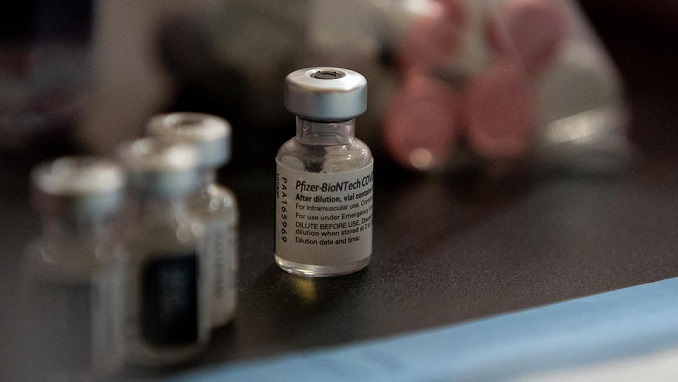
Pfizer and BioNTech revealed that a supplemental dose of their coronavirus vaccine restored complete protection, The Hill reported.
Late-stage clinical research revealed that the booster was 95.6 percent effective against symptomatic coronavirus, according to the company.
The pharmaceutical companies claim that the results about the effects are the first from a random, controlled study of a coronavirus booster.
The study tracked 10,000 people aged 16 and up who were given either a booster dose or a placebo 11 months after receiving the first two doses of the vaccine.
Only five instances of coronavirus were observed in the booster group during the trial period, while 109 cases were seen in individuals who had not received the booster.
In April, Pfizer and BioNTech announced that a two-dose series was 95.3% successful six months after the second treatment in treating severe illness.
The news comes as the United States cranks up booster doses of coronavirus vaccination in the wake of a spike in illnesses linked to the delta strain.
Booster injections have begun to be distributed in countries such as the United States and Israel. The World Health Organization, on the other hand, has advocated for a ban on booster shots until 2022, in order for every country to vaccinate at least 40% of its citizens.
In September, the Food and Drug Administration (FDA) approved booster injections of Pfizer’s vaccine for adults 65 and older, as well as those who are at high risk of severe illness. The second dose must be administered at least six months following the first.
The FDA approved booster doses of Moderna on Wednesday, which are also for individuals 65 and older or at an increased risk of serious illness six months after the first dosage. The booster dosage from Johnson & Johnson was approved for everyone 18 and older at least two months following immunization.
Patients were also given the option of receiving a different booster vaccination than the one they had originally.

Be the first to comment